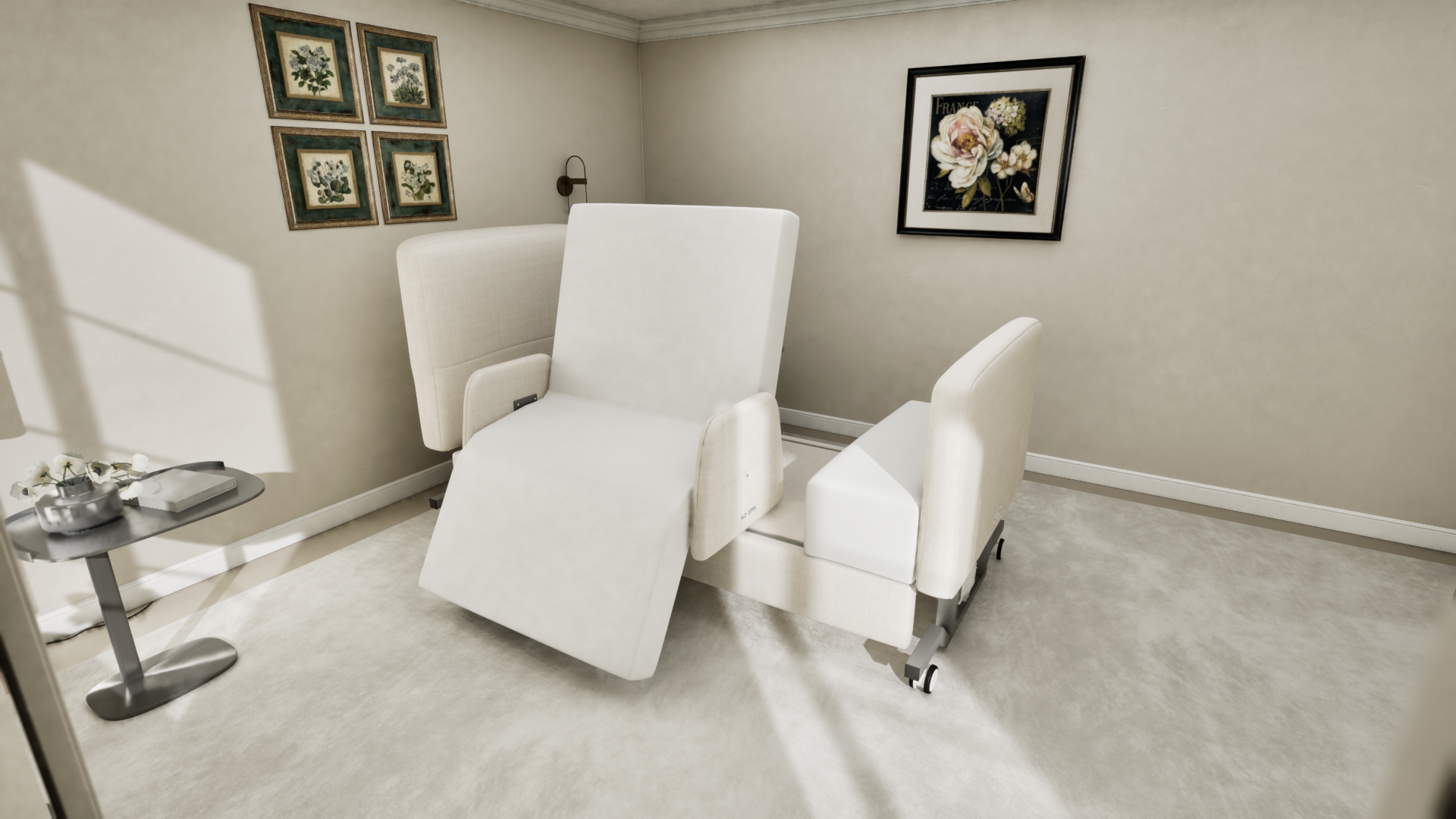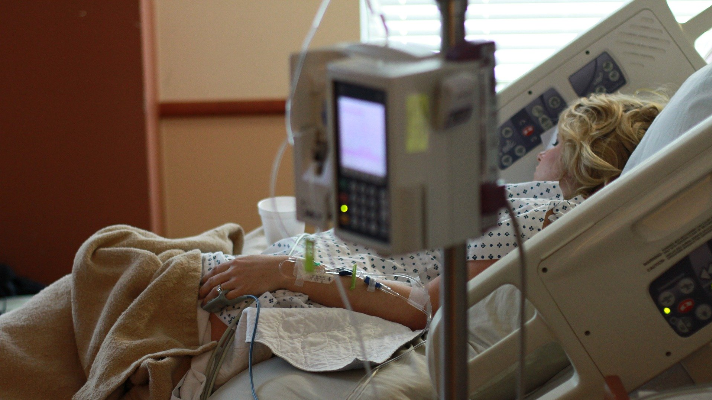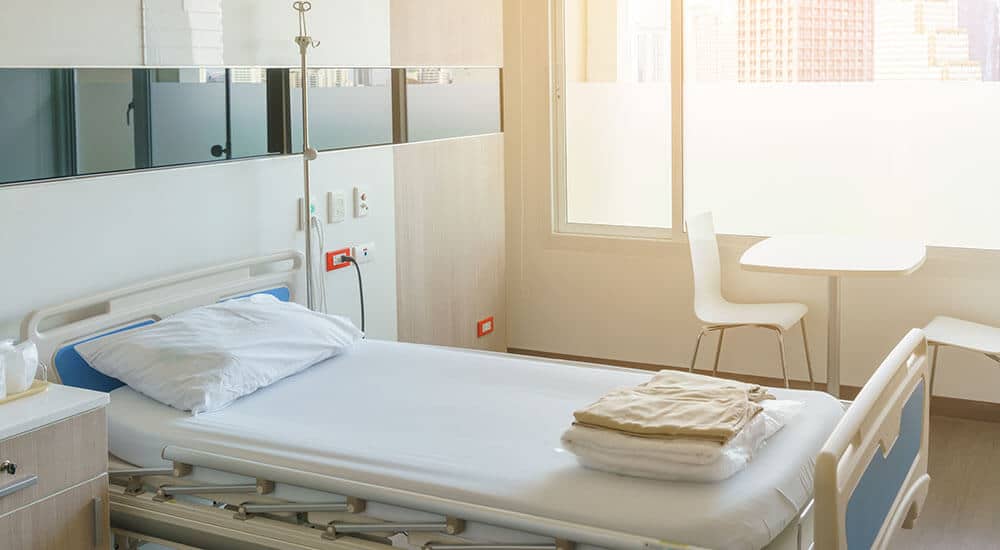Hospital Beds For Home Use Fundamentals Explained
Table of ContentsAll About Hospital Beds For Home UseGet This Report about Hospital Beds For Home UseThe Hospital Beds For Home Use DiariesTop Guidelines Of Hospital Beds For Home UseA Biased View of Hospital Beds For Home UseSome Known Questions About Hospital Beds For Home Use.Things about Hospital Beds For Home Use
There are 3 main types of hospital beds: handbook, semi-electric, and fully-electric. Nevertheless, even more sorts of clinical beds exist and they are listed here. These beds use hand cranks to readjust the bed's elevation and elevate and decrease the head and the foot. Hand cranks are normally located at the foot of the bed and need a person that is literally with the ability of operating.
Semi-electric beds have an electric motor to elevate and lower the head and foot portions of the bed (hospital beds for home use). Full-electric beds have an electric motor that can increase the head and foot sections of the bed as well as the entire elevation and positioning of the bed.
Hospital Beds For Home Use for Beginners
There are numerous kinds of medical facility beds, each developed to meet specific person needs. Below are some typical kinds: This is the most common kind of hospital bed, designed for general clinical use.
Lower to the ground than a conventional bed. This kind of bed is developed for bigger patients, with a broader framework and greater weight capability than a standard bed.
This kind of bed is created for critically unwell individuals who call for open tracking and specialized clinical devices such as ventilators and mixture pumps. This kind of bed is developed for usage throughout labor and shipment, with adjustable placements and attributes to support the mommy and baby throughout the birth process.
Hospital Beds For Home Use for Beginners
Several feature and the accessories do increasing traction to various components of the vertebra and the extremities without moving the human body. These are simply a couple of instances of the sorts of medical facility beds offered. The certain kind of bed made use of will certainly depend upon the individual's condition, medical requirements, and various other aspects.
Below is things you require to recognize. A one-function hospital bed is a clinical bed that allows a person to move only the head or foot area up or down. A 2 feature health center bed usually refers to a kind of medical bed that has two flexible functions to aid patients in healthcare facilities or care centers.

Excitement About Hospital Beds For Home Use
A 7-function ICU bed is a kind of clinical bed that offers several flexible functions to support seriously unwell individuals in an intensive care system (ICU) (hospital beds for home use). The 7 features usually include: Backrest modification: The backrest can be adjusted to numerous angles to assist the person stay up or exist down pleasantly
Height modification: The bed can be elevated or lowered to make it much easier for people to get in and out of bed, and for caretakers to provide care. Trendelenburg position: The whole bed can be slanted to advertise blood flow and blood circulation in the body. Reverse this website Trendelenburg setting: The bed can likewise be slanted in the contrary direction to promote blood flow and flow in the upper body.
While even more cost effective than electrical versions, these beds need physical effort for changes. The main benefits of hand-operated beds are their cost and dependability, as they do not rely on electrical energy. Nevertheless, the demand for manual initiative can be a limitation in scenarios where quick adjustments are essential or where caretakers face physical challenges.
The Only Guide to Hospital Beds For Home Use
They are well-suited for people who need very little rearranging for comfort or clinical requirements. Semi-electric medical facility beds supply an equilibrium of guidebook and electric controls. The head and foot areas are typically readjusted with electric controls, while the height is readjusted manually. These beds provide an excellent middle ground in between handbook and completely electrical alternatives, providing ease of check it out use without the complete cost of electric models.
Semi-electric beds are well-suited for individuals that need moderate adjustments to the head and foot sections however can take care of without frequent elevation changes. This makes them an affordable solution for those looking for comfort and comfort without the requirement for constant repositioning. Fully electric health center beds feature electric controls for smooth adjustments to the elevation, head, and foot sections.
Specialized healthcare facility beds, such as ICU beds, long-lasting treatment beds, and bariatric beds, are thoroughly developed to attend to details medical demands. These beds supply tailored care for diverse client groups, boosting both results and convenience. In the adhering to areas, we will explore the primary kinds of specialty healthcare facility beds, outlining their certain benefits and applications.
With years of experience in producing electrical linear actuators - hospital beds for home use and close partnership with the healthcare industry, TiMOTION is well-positioned to offer reliable medical care services. Our up and down integrated business handles every action of the manufacturing process, from layout to actuator setting up, ensuring we supply remarkable worth and tailored solutions customized to your details requirements
The 6-Minute Rule for Hospital Beds For Home Use

To find out more concerning integrating these innovations right into your items, contact us today. More reading:.
Data is sourced from the Medicare Cost Record.

Fascination About Hospital Beds For Home Use
A hospital bed is a bed developed especially for clinical functions. It is not just an area for clients to relax, however additionally a platform for clinical operations. Unlike average home beds, medical facility beds usually have flexible features, which can help with medical staff to make different changes according to the demands of patients, such as transforming the elevation, inclination, and support angle of the back and legs of the bed.